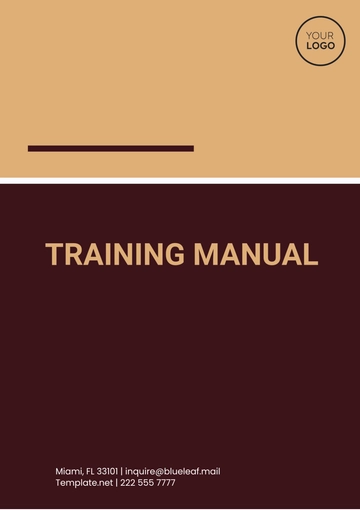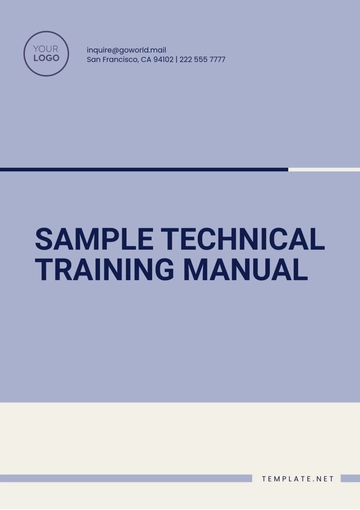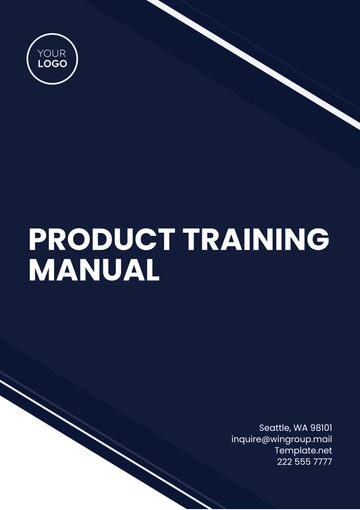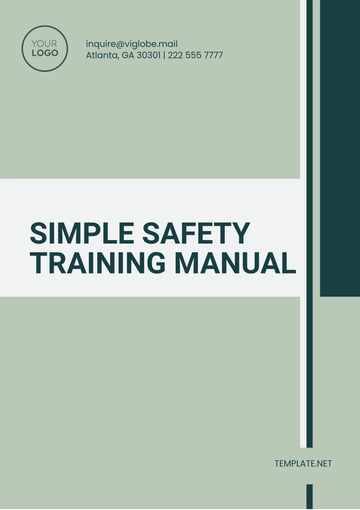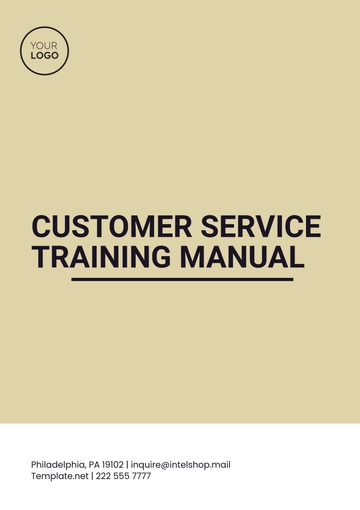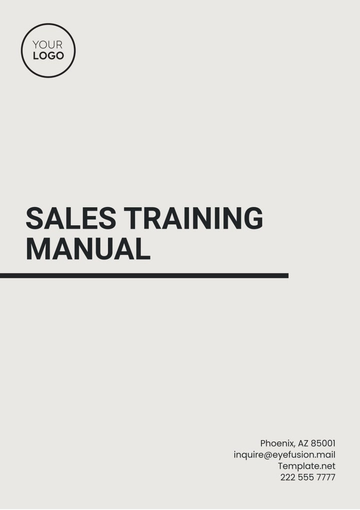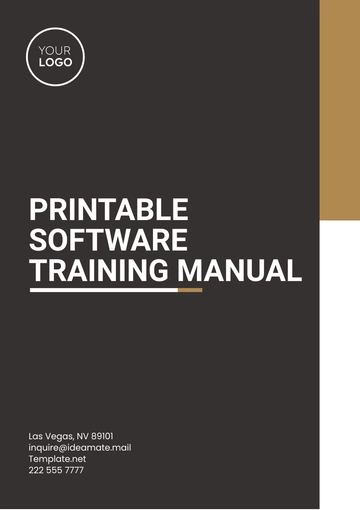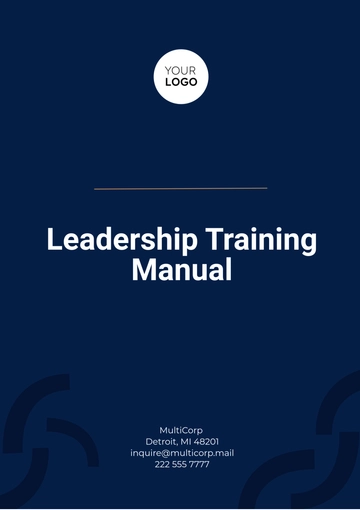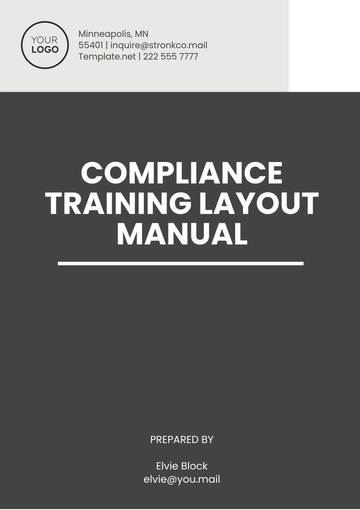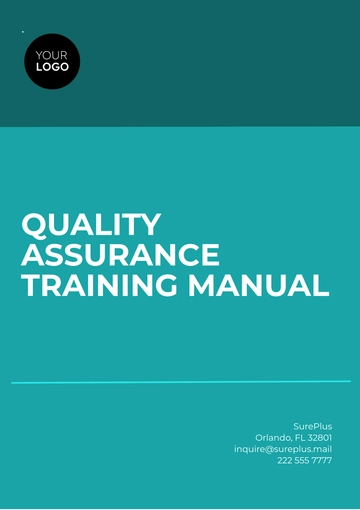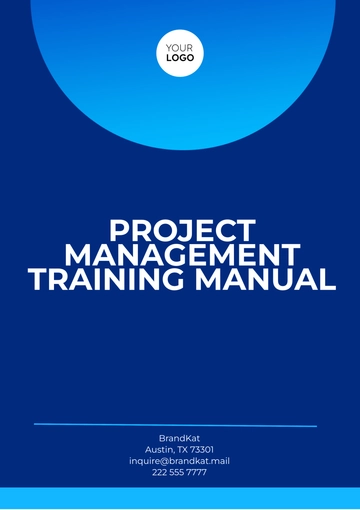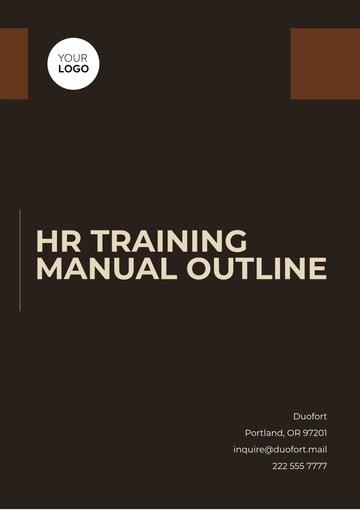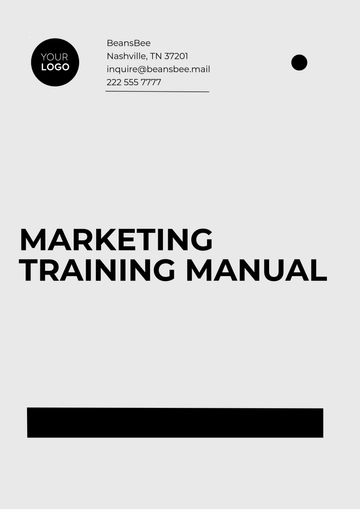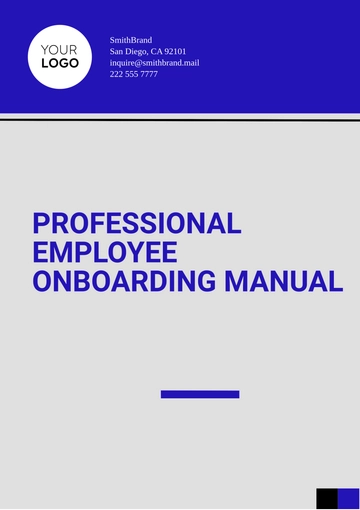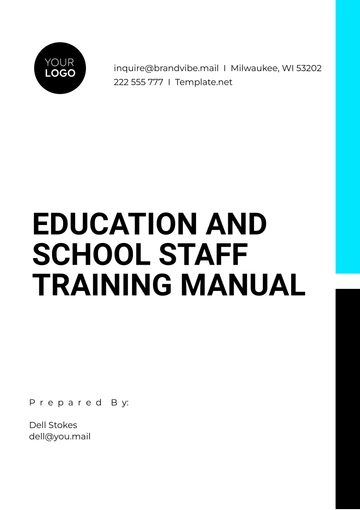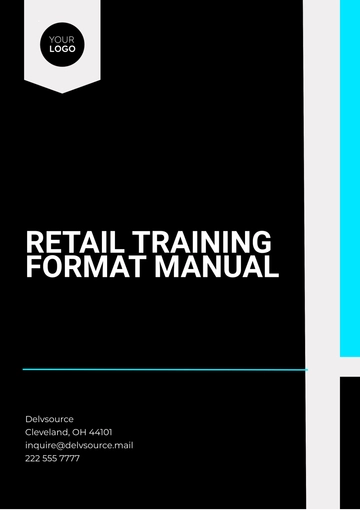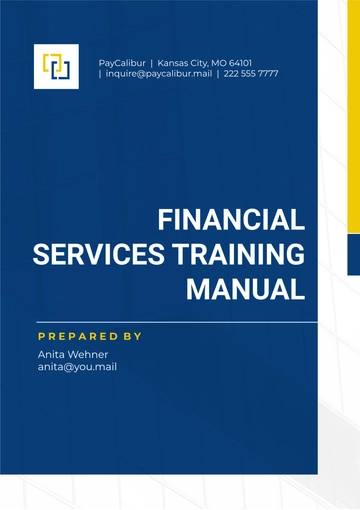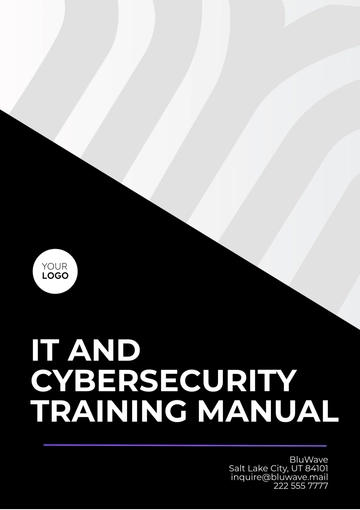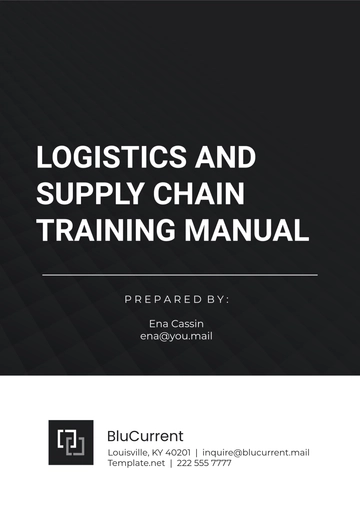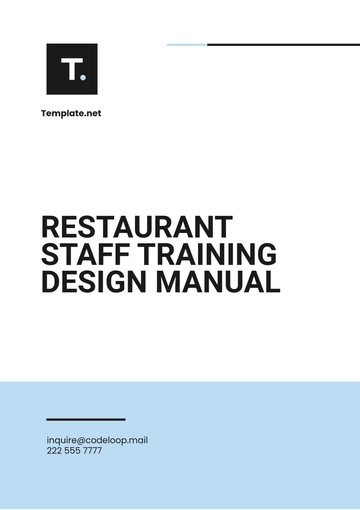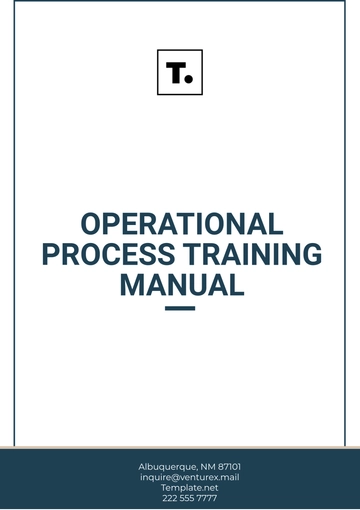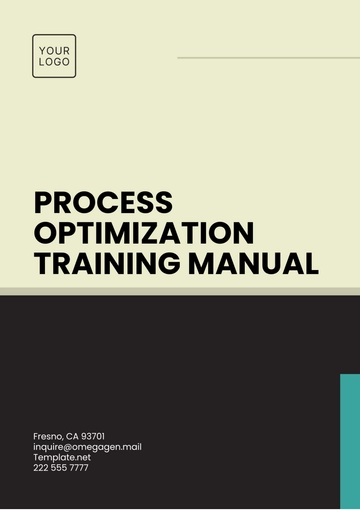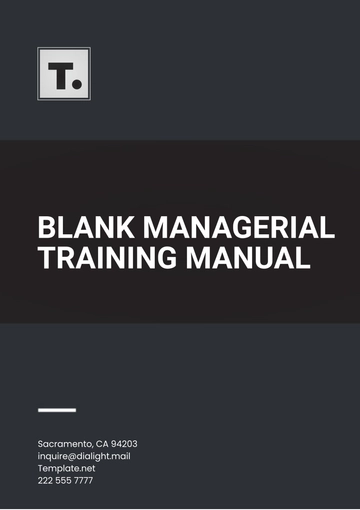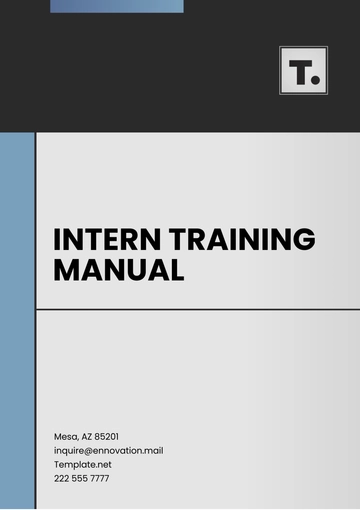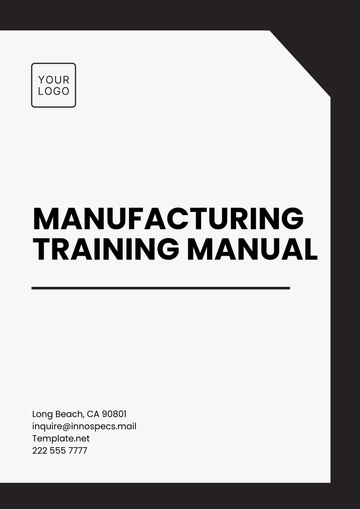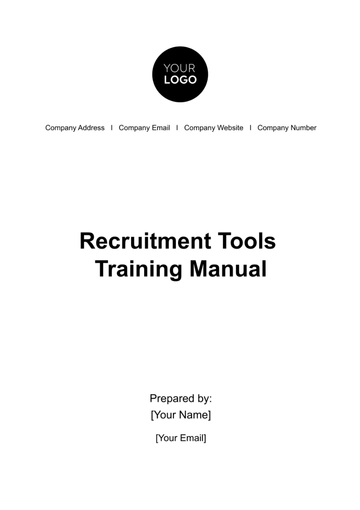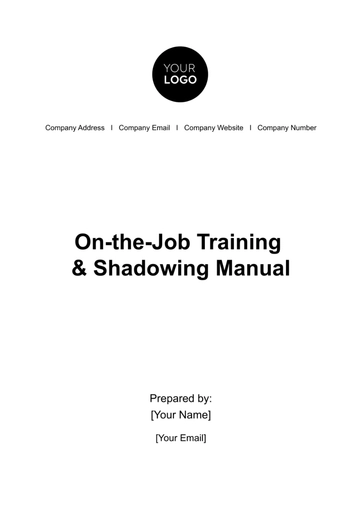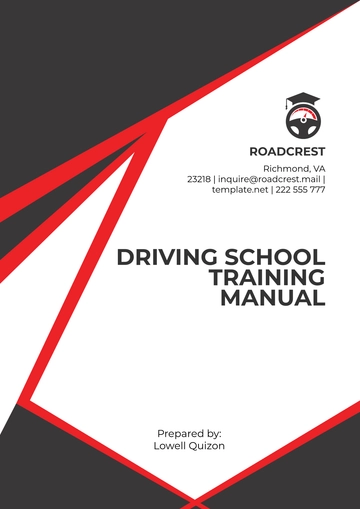Free Production Supervisor Training Manual
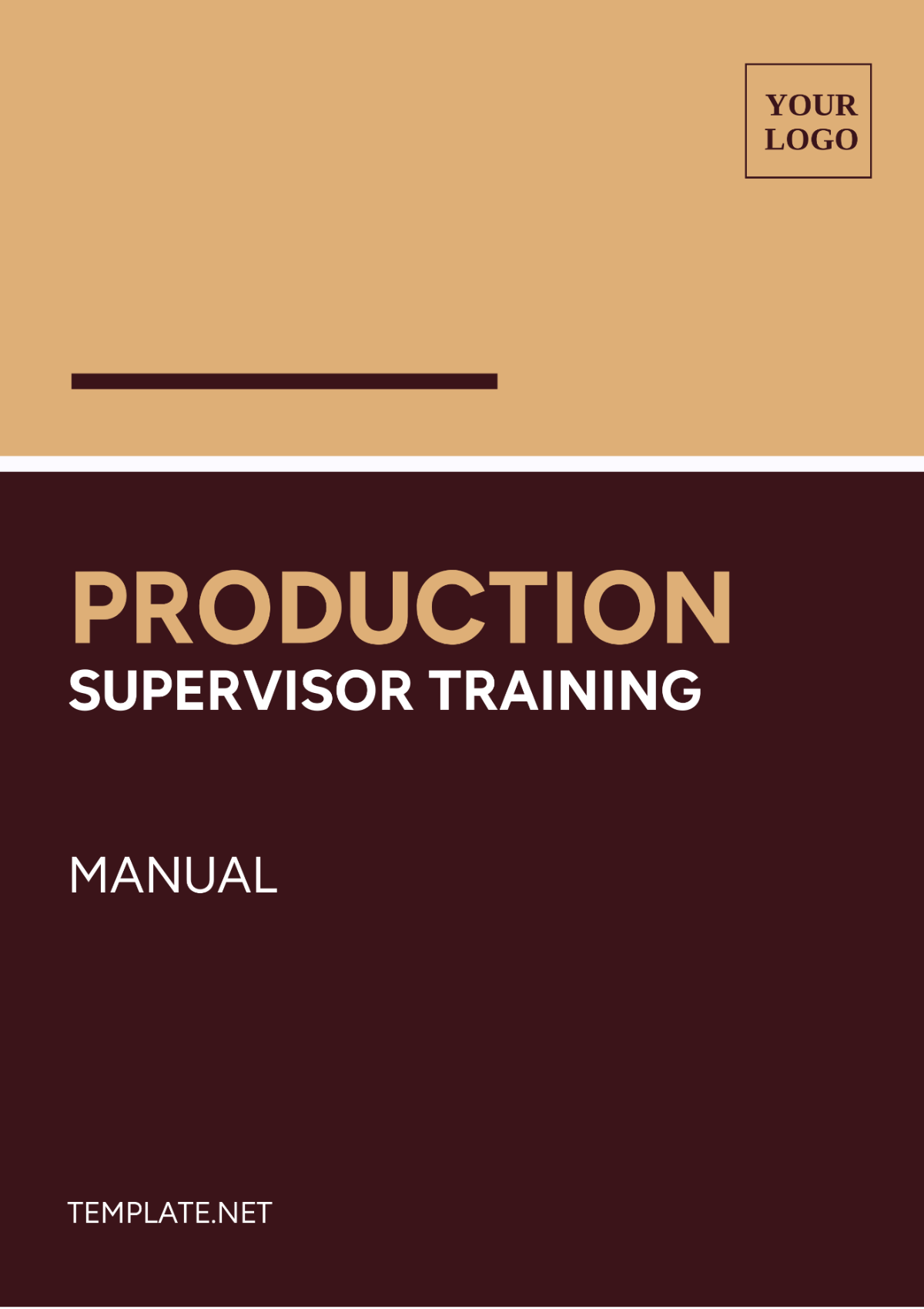
Name | [YOUR NAME] |
|---|---|
Company | [YOUR COMPANY NAME] |
Department | [YOUR DEPARTMENT] |
Date | [DATE] |
I. Introduction
Welcome to the [YOUR COMPANY NAME] Production Supervisor Training Manual! This manual is designed to equip you, [YOUR NAME], with the essential knowledge and skills needed to excel in your role as a production supervisor within [YOUR DEPARTMENT]. As a production supervisor, you play a crucial role in ensuring the smooth operation of production processes while upholding quality standards and safety protocols.
In this introductory section, you will find an overview of the manual's contents, along with guidance on how to effectively utilize this resource. Whether you are a new supervisor looking to learn the ropes or an experienced professional seeking to enhance your skills, this manual will serve as your comprehensive guide to success in the production environment at [YOUR COMPANY NAME].
II. Getting Started
A. About [YOUR COMPANY NAME]
[YOUR COMPANY NAME] is a leading provider of [SERVICES], serving customers worldwide since [YEAR].
Our commitment to excellence and innovation has positioned us as a trusted leader in the [INDUSTRY].
As a production supervisor at [YOUR COMPANY NAME], you are part of a dynamic team dedicated to delivering high-quality products/services to our valued customers.
B. Role of the Production Supervisor
As a production supervisor, you are responsible for overseeing all aspects of the production process, from scheduling and resource allocation to quality control and safety.
Your role involves leading and motivating production teams, troubleshooting issues, and ensuring efficient operations to meet production targets and deadlines.
Effective communication, problem-solving skills, and a strong understanding of production processes are essential for success in this role.
III. Operational Procedures
A. Production Workflow
Familiarize yourself with the production workflow, including key stages from raw materials acquisition to finished product assembly.
Ensure that production schedules are followed, and resources are allocated efficiently to maximize productivity.
Implement measures to optimize workflow and minimize bottlenecks to meet production targets.
B. Quality Control Standards
Uphold [YOUR COMPANY NAME]'s quality standards by implementing rigorous quality control measures throughout the production process.
Train production staff on quality control procedures and ensure adherence to specifications to maintain product integrity.
Address any quality issues promptly and implement corrective actions to prevent reoccurrence.
IV. Safety Protocols
A. Occupational Health and Safety
Prioritize the safety of all employees by enforcing strict adherence to occupational health and safety protocols.
Conduct regular safety inspections, identify hazards, and implement corrective measures to mitigate risks.
Provide comprehensive safety training to production staff and promote a culture of safety awareness in the workplace.
B. Emergency Procedures
Develop and communicate emergency procedures to respond effectively to workplace incidents such as fires, chemical spills, or medical emergencies.
Ensure that all production staff are trained in emergency response protocols and evacuation procedures.
Conduct regular drills to test the effectiveness of emergency procedures and identify areas for improvement.
V. Leadership and Management
A. Team Leadership
Inspire and motivate production teams to achieve performance goals and objectives.
Foster a collaborative work environment and encourage open communication to enhance team cohesion and morale.
Provide constructive feedback and coaching to support the professional development of production staff.
B. Conflict Resolution
Address conflicts and disputes among production staff promptly and professionally.
Utilize effective communication and mediation techniques to resolve conflicts and restore harmonious working relationships.
Implement proactive measures to prevent future conflicts and promote a positive work culture.
VI. Communication and Collaboration
A. Interdepartmental Coordination
Collaborate with other departments such as procurement, logistics, and maintenance to ensure seamless coordination of resources and operations.
Facilitate regular meetings and communication channels to exchange information and address any cross-functional issues or challenges.
Foster strong relationships with key stakeholders to promote collaboration and achieve common goals.
B. Reporting and Documentation
Maintain accurate records of production activities, including production outputs, inventory levels, and equipment maintenance logs.
Generate regular reports on key performance indicators (KPIs) to monitor production efficiency and identify areas for improvement.
Ensure compliance with reporting requirements and documentation standards set forth by regulatory agencies and internal policies.
VII. Continuous Improvement
A. Lean Manufacturing Principles
Implement lean manufacturing principles to streamline processes, reduce waste, and enhance productivity.
Encourage a culture of continuous improvement by empowering production staff to identify inefficiencies and propose innovative solutions.
Regularly review production processes and workflows to identify opportunities for optimization and cost savings.
B. Training and Development
Invest in the professional development of production staff through ongoing training programs and skill-building initiatives.
Provide opportunities for cross-training and upskilling to enhance versatility and flexibility within the production team.
Evaluate the effectiveness of training initiatives through feedback mechanisms and performance assessments.
VIII. Conclusion
Congratulations on completing the [YOUR COMPANY NAME] Production Supervisor Training Manual! By mastering the concepts and skills outlined in this manual, you are well-equipped to excel in your role and contribute to the success of our organization. Remember to apply the knowledge gained here in your day-to-day operations and continue striving for excellence in all aspects of production supervision.
Should you have any questions or require further assistance, do not hesitate to reach out to your supervisor or the [YOUR DEPARTMENT] training coordinator. We wish you every success in your journey as a production supervisor at [YOUR COMPANY NAME].
- 100% Customizable, free editor
- Access 1 Million+ Templates, photo’s & graphics
- Download or share as a template
- Click and replace photos, graphics, text, backgrounds
- Resize, crop, AI write & more
- Access advanced editor
Discover the ultimate tool for honing your production supervisory skills with Template.net's Production Supervisor Training Manual Template. This editable and customizable resource offers comprehensive guidance, enabling you to tailor your training program effortlessly. Crafted for efficiency, it's seamlessly editable in our Ai Editor Tool, ensuring precision and ease in your training endeavors.
